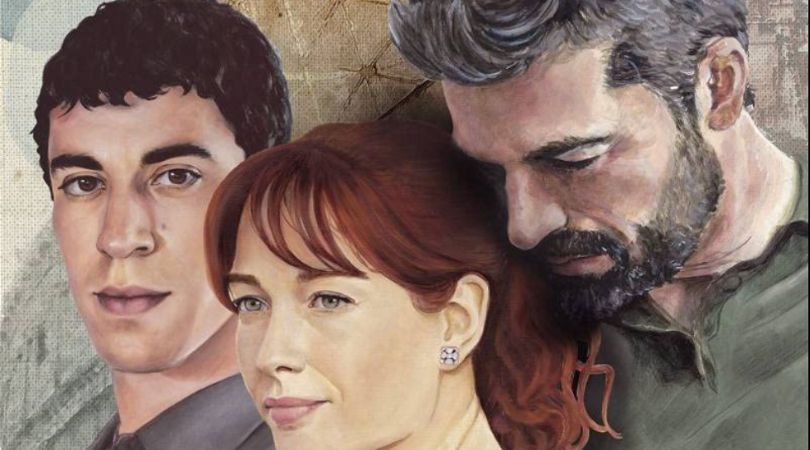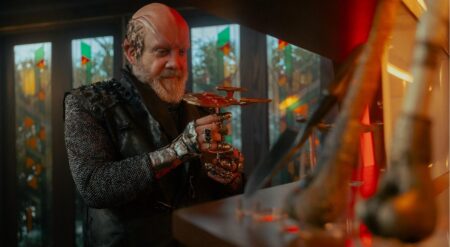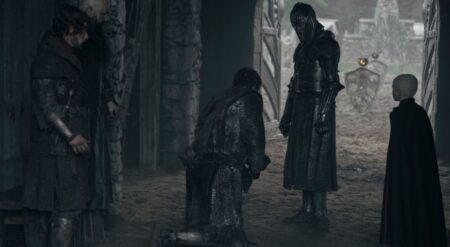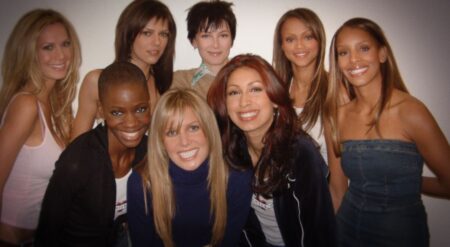
The Ignorant Angels (Le Fate Ignoranti) is an Italian-language Hulu Original directed by Ferzan Özpetek and based on his 2001 film The Ignorant Fairies (Le Fate Ignoranti) or His Secret Life. When Massimo (Luca Argentero) dies in a motorcycle accident, he leaves behind a wife of fifteen years, Antonia (Cristiana Capotondi) and a boyfriend of just over one year, Michele (Eduardo Scarpetta). Michele and every one of his friends knows about Antonia, but she doesn’t know about them. In fact, Massimo was on his way home to tell her when the accident happens, and she is left to find out the hard way.
But The Ignorant Angels isn’t a tragedy or a story about a scorned wife. It’s a masterful examination of love in all its forms and the way that two people who were never meant to meet wind up enriching each other’s lives and the lives of everyone around them. Death, breakups, and infidelity are painful, often wretched things, but they don’t always have to be. With just the right mix of circumstances, bravery, patience, and love, they can become opportunities for growth and change in ways previously unimaginable. This is what The Ignorant Angels is all about and what it so wonderfully displays through the lives of its endearing characters.
At first, I found the show a bit of a drag. I wondered how a film originally less than two hours could be dragged out into eight episodes of nearly an hour each. I thought I knew where everything was going based on the premise alone, and, because the first episode takes place in a flashback entirely before Massimo even dies, that I’d be in for a slog. For the first episode, I will admit that it was. But once both the show found its footing and I found its intention, it became impossible to stop watching.
Michele lives on the top floor of an apartment building managed by the wonderful Serra (Serra Yilmaz), who actually reprises her role from the original film. She has turned this building into a queer safe haven and a true and incredible family. They’re all in each others’ business at all times, each has a key to Michele’s apartment, and they have Sunday brunch together every single week without fail. While each of the characters is generally based on the originals, even reenacting certain scenes beat for beat, in The Ignorant Angels the episodic nature and the sheer length of the show allow them to each be their own fully realized characters with arcs and emotional beats that weave themselves into each episodes’ themes as well as the ongoing tension between Michele and Antonia. While their plot is deeply intriguing, it really is these secondary characters who make up the heart of the series and give it such warmth.
Said tension between Massimo’s two loves is certainly the center of attention though. They simply can’t decide how to get along. At first, there’s intense jealousy and disdain. But Antonia keeps coming back to the building, and all of its residents, even eventually Michele himself, keep welcoming her back in. Where I think the series gets its best dimension is that it’s not a story of a queer community adopting the poor straight widow of their friend Massimo and helping her come to some grand realization about her place in the universe. Which is, in part, what I feared it would be. It’s really a story of how mutually each and every one of them grapples with love through death, infidelity, bigotry, politics, and time. Antonia’s being a part of their family was simply a missing piece to helping everyone in that journey. Not because she solves everyone’s problems or they solve hers. Many of the plot threads never actually get resolved, in a move that first frustrated me but then simply hammered home the point that love doesn’t need to have a concrete answer and obvious shape to take at every given moment.
What I also greatly appreciated about this adaptation of the director’s own previous work is that it wasn’t simply a remake. The original is a product of its own time, in so many ways. It’s a story that takes place when queer stories weren’t nearly as widespread or normalized, same-sex marriages weren’t legal in most places, standing out strong was a political statement almost more so than it was about identity, at least in the context of media, and, let’s face it, the style was outrageous.
In the time of The Ignorant Angels, pretty much the opposite is true for all of those facets now. The characters are less dramatized, the plot and tone are less dismal, and overall, it feels like a pure celebration of life and love over and over as each character gets to have theirs. If it took the same tone and approach to depicting queerness as the original, it would likely feel stilted and perhaps even unfulfilling. Instead of rehashing the queer political struggle of the time, it is embued with the more nuanced joys and struggles of modern queer storytelling and life. Updating the context and shifting the overall tone was masterful and resulted in a moving story.
The Ignorant Angels is a strong eight episodes about what love really is and perhaps even what we can do to invite more of it into our lives, despite the things we would typically associate with heartbreak. Its bizarre fade-to-black scene changes are perhaps all that I can say negatively about it. I do wish it offered some more closure, but then again, we rarely get that in life, so why should every story be expected to deliver it too?
The Ignorant Angels is streaming now on Hulu.
The Ignorant Angels
-
Rating - 8/108/10
TL;DR
The Ignorant Angels is a strong eight episodes about what love really is and perhaps even what we can do to invite more of it into our lives, despite the things we would typically associate with heartbreak.






